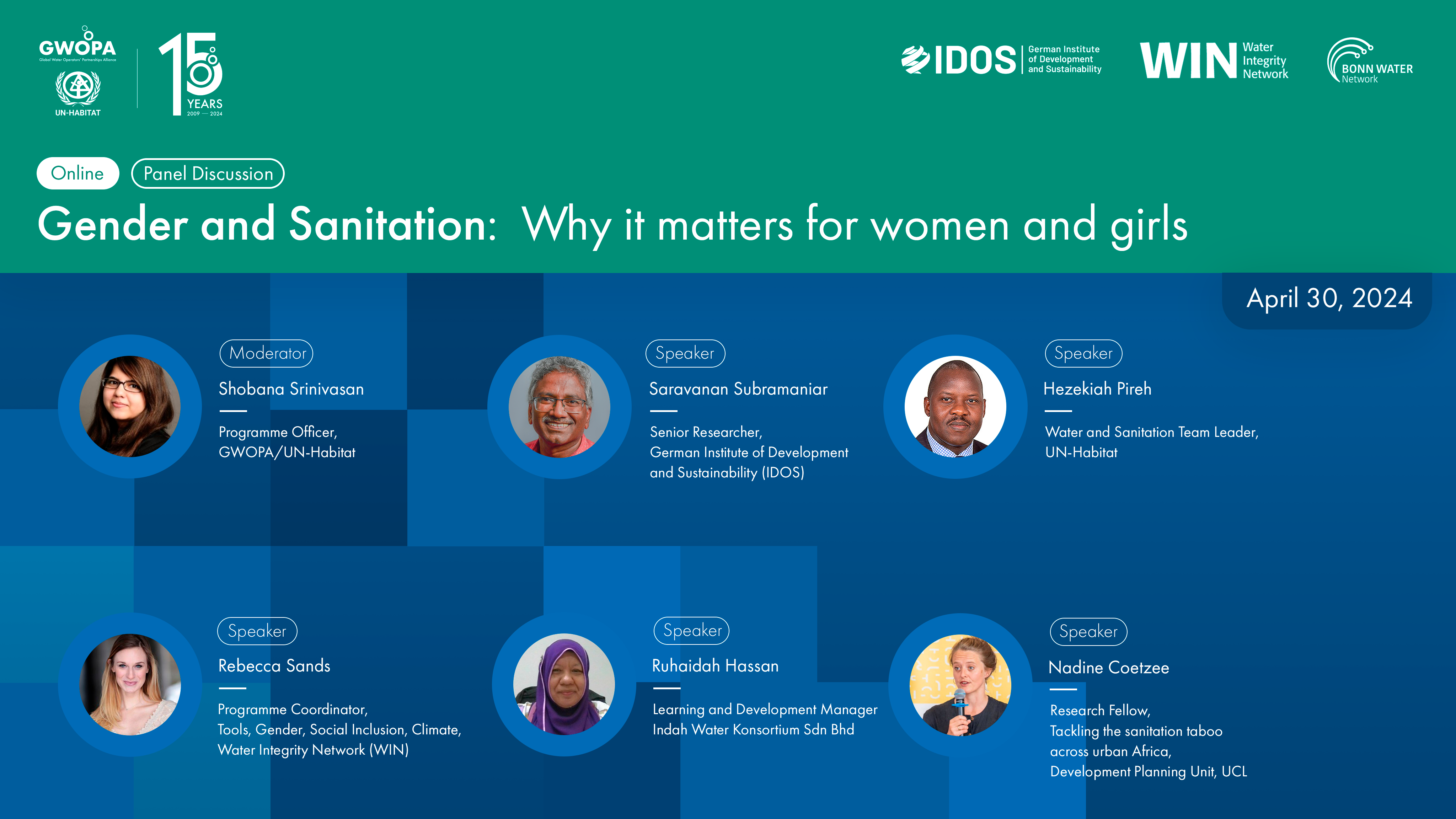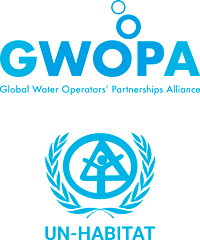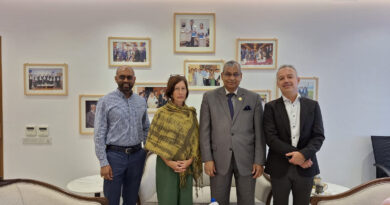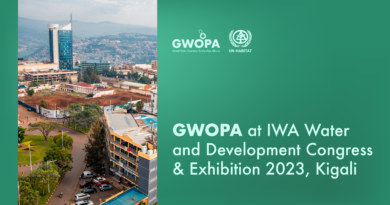Gender and Sanitation: Why it matters for women and girls
30 April 2024, GWOPA/UN-Habitat, together with partners Water Integrity Network, German Institute of Development and Sustainability (IDOS), Indah Water Konsortium Sdn Bhd, Development Planing Unit of University of College Lodon -UCL, jointly organized a webinar onGender and Sanitation: Why it matters for women and girls. The webinar focused gender transformative approaches in sanitation through five different lenses: policies, integrity, water and sanitation utilities, and cultural and societal aspects, including taboos.
The six panelists from different agencies discussed how to maximize the effort of implementing gender transformative approaches into water and sanitation work and why they can be powerful tools for improving sanitation access. They agreed that Embedding gender equity into policy is crucial for achieving universal water and sanitation access and advancing SDGs like poverty reduction, health, education, and work.
WASH must be approached through a gender lens, with policies involving women and girls in planning and governance. Historically androcentric, sanitation often marginalizes women and other genders across education, technology, legislation, and administration. Beyond representation, development agencies need a gender-sensitive mindset. Despite progress, women are still viewed as users and victims. The OVERDUE action research network at UCL aims to reframe them as sanitation producers and providers. In Malaysia, sanitation workers face dirty, dangerous, and difficult conditions, influenced by culture and gender perceptions. Mainstreaming gender in sanitation involves addressing the diverse needs, opportunities, and challenges of all genders in utility operations and service delivery.
Watch the webinar





